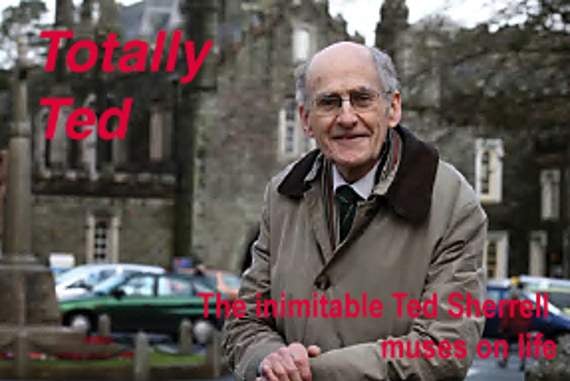Never could I claim to be a natural or habitual gambler. I am a man with, on the whole, a cautious approach to life – and most definitely a pessimist, with a glass half empty mentality rather than half full, which is the laudable outlook of many folk even though their optimism might often be betrayed.
Granted, Ann and I did for some while do the National Lottery each week, but seeing as we won just about as often as Halley’s Comet appeared overhead – then only a ‘tenner’ – investment in the uncertain, but potentially rewarding, is now restricted to backing the occasional horse. To do this I will go to a high street betting shop and I must admit, I enjoy the experience.
Now, I have to say that betting, in my opinion, gets a ‘worse press’ than it deserves. True one can lose a fortune in just minutes – and there are those who have – whilst others become addicted bringing misery and penury to their families; however, the vast majority of punters do not; rather they invest their money with discipline and responsibility – and take pleasure in the thrill of the unknown; win or lose. Such people, myself included, decide how much they can afford – or are willing – to forfeit, then ensure that limit is not exceeded.
I have, very occasionally, visited race meetings in person to experience for myself ‘the sport of kings’ in its full theatrical glory, but interesting and enjoyable though such a visit to a live event can be, more pleasurable and relaxing to me is a visit to a centrally heated ‘turf accountants’ premises in the town.
Bookies’ emporiums, usually, are peaceful, serious venues populated by knowledgeable scholars gazing at lists of runners and associated odds; indeed, often there is more hush and tranquillity to be found than in a church or library. For laying out hard earned cash on an outcome that cannot be predicted ‘for sure’ is a most grave pursuit. Form and pedigree has to be examined and analysed, the state of the turf upon which the ‘osses’ will gallop, likewise, plus assessments made as to the competence of trainer and jockey, until finally a selection is made and the adrenalin kicks in
Greyhound racing is slightly less complex – no jockey here, whilst always they will run on a hard surface; one strange quirk, to me at least, is why these speedy canines perpetually are fooled into hurtling around the track in pursuit of a mechanical ‘hare’; one would think this eternal deception would have hit home by now.
Rarely do I place money on the ‘dogs’, but I was tempted to do so a while back – and gave way to it. The name of the beast was ‘Pilgrim’; surely, with a name of such gravitas, it would be a winner; the odds against were quite long – and I found out why; I think they had turned the lights out before this tortoise like creature crossed the line.
One area I do steer clear of is attempting to predict the outcome of football matches. If ever I did though, Plymouth Argyle would not be involved; for even if they were playing the local cub scouts reserves, my defeatist mentality, when it comes to their fortunes – often the prefix ‘mis’ needs to be applied – would have me betting on them being defeated; that to me, though, whilst realistic, would be an unforgiveable act of disloyalty.
Irrespective of their ‘sport of choice’, for a huge majority gambling in a betting shop is simply a satisfying way of whiling away an hour or two whilst seated in a comfortable chair gazing at TV screens. These retreats dedicated to wager and chance provide sanctuaries of relaxation, an ambience of tranquillity, and a welcome escape from the bustle, pressure and stresses of the wider world and everyday life; even if one does mostly leave the premises richer for the experience rather than in the wallet.
Whilst a small number of these gents (and most frequenters of such premises are male) could possess a modicum of addiction when it comes to betting, very few will have cause to lament, as did a once wealthy and titled gent long ago, that he had become penniless due to ‘fast women and slow horses’.
Having said that, whilst most punters in these ‘shops’ are of an age where they have little interest nowadays in the pursuit of the former – if they ever did – there is still plenty of scope for succumbing to the lure of the latter. The challenge of backing a winner or falling for an enticingly named but unfancied ‘donkey’ will still see many shaking their heads in disbelief as they wearily make for the exit and start the lonely trudge home.
That’s the nature of the business, of course; after all, if most punters won on a regular basis, then the bankruptcy courts would be full of bookies. Chances of this happening are exceedingly remote.




